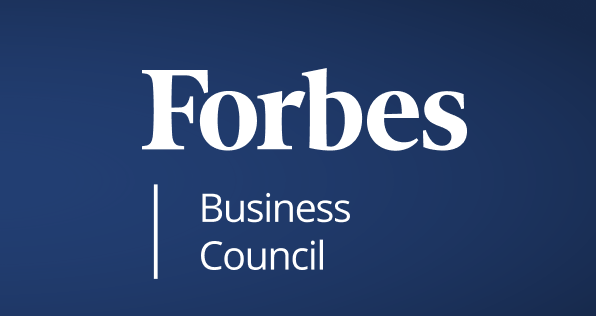Featured on The Marketing Dive:
Returning to the long-term partnerships of a bygone era could bring quantifiable value and trust back to brands.
— Read the published Marketing Dive article —
Many stories in the past few years have highlighted long-term relationships between clients and agencies ending abruptly, such as big brands including Land O’Lakes, McDonald’s, Olive Garden, Accenture, Southwest Airlines, Disney ESPN and BMW. Even as recently as the past month, Beiersdorf’s global brand Nivea ended its century-old relationship with FCB (formerly Lord & Thomas) and PepsiCo’s Mountain Dew recently chose TBWA\Chiat\Day New York as its lead creative agency, replacing longtime partner BBDO New York after 46 years.
For the past four years, I have tracked more than 200 agency relationships with some of the largest consumer and business brands across the globe. Given all the recent “breakups,” this data shows only 11% of relationships endure more than 20 years, while 31% last less than three years. My observations show that integrated agencies (creative, media, etc.) index higher than average, likely due to the complexity and breadth of the relationship. If this trend continues, we may start seeing the length of relationships rise again. This can only positively contribute to quantifiable value for brand advertisers through more effective collaboration and institutional knowledge.
However, today’s fast-moving, cutthroat and demanding environment still shows that advertisers are switching agencies at a faster clip than ever before. Loyalty has become a forgotten word in a tough world, while trust between clients and agencies hits record lows. According to the Association of National Advertisers’ March 2019 Trust Report, 28% of survey respondents said trust between clients and agencies has declined over the past two to three years. Is this all that surprising? Would you trust someone you just met?
Advertisers have mastered the process of ending relationships and starting new ones in recent years. They somehow convince themselves their agency is the weak link as they struggle to drive growth or achieve results. In the process of building that muscle, they atrophy another far more valuable one: the skills required to build sustained relationships and be a good partner to their agency.
We need to bring back the legacy partnerships. I know, easier said than done. When it comes to long-term agency relationships, it seems they can eventually fall into an unwanted state of complacency. This scenario is quite possible, especially if the relationship is not regularly evaluated to course-correct potential shortcomings. Even as soon as a few months in, early signs of dissatisfaction in the relationship can be detected and formally addressed before they majorly disrupt the relationship.
Strong footing at the beginning of a relationship with a new agency and careful maintenance can set both sides up for long-term success in the following ways:
- Strong company and business expertise: The institutional knowledge built with a client is passed on over time from team to team, allowing the agency to be a valuable adviser and a vital source of company and business information for new client teams. Time-saving and problem-solving activities are greatly enhanced, as is overall perspective, when teams have an intimate knowledge of the business, the client’s history and background on past successes and shortcomings.
- More effective collaboration and improved engagement: The ability to work efficiently is greatly enhanced when both parties are intimately aware of protocols and operating guidelines that make collaboration more effective. Fewer delays, less rework and less frequent or systematic issues can strengthen workplace morale. Teams know how to avoid land mines, grow comfortable and are likely to challenge each other more as a result, which translates into better work output and outcomes.
- Better productivity, higher output and resource utilization: Like any well-oiled machine, teams produce better outputs when they have extensive experience working together. They also use their time and resources more effectively, avoiding waste and duplicative efforts. Communication improves. Less time is likely to be spent on less critical or low value-add activities. In a trusted relationship, less energy is spent on providing data to justify the time or effort involved.
- Reduced turnover expenses and onboarding efficiencies: Long-term relationships can ease hiring and retaining agency staff. As turnover is drastically reduced, onboarding and training costs drop. A stronger sense of belonging and community may develop as well. Seeing more long-term success and payoff for the hard work builds strong ties and reduces turnover.
Other benefits of long-term partnerships include trust, improved compliance and operational excellence, as well as more quantifiable benefits like productivity gains, reduced costs and improved work output. But for any relationship to work, accountability must exist on both sides.
Accountability is critical to the relationship, work performance and measurable results. If accountability is low between the client and the agency, new relationships are immediately questioned and unlikely to grow and last. Similarly, long-term relationships may fall into a state of complacency if accountability is low. The relationship is suddenly at risk until a review determines the fate of the incumbent agency. Consider the following Client/Agency Loyalty Matrix:

If accountability is high, both the client and agency are accountable to each other, and a real opportunity to build a long-term partnership emerges. They share accountability for how they work together, the values they embrace and the expectations they set for their respective organizations. They also share accountability for business and marketing performance. Then — and only then — can loyalty truly flourish, and tangible value be realized. That often requires leadership and commitment at the C-suite level on both sides.
The bottom line is that business is too competitive not to have motivated and passionate agencies working on your side. Before advertisers simply default to initiating an agency review process and selecting a new partner, consider whether the real issue is lack of communication, trust or mutual accountability. If loyalty can be restored and relationships go back to ones spanning years, or perhaps decades that were so common until recently, advertisers may soon see positive contributions through greater efficiencies, collaboration and working with teams that hold vast institutional and historic knowledge. What advertisers want is that unique gem of an agency they can grow with and create unmatched value.
By Bruno Gralpois, Co-founder & Principal | October 21, 2019





